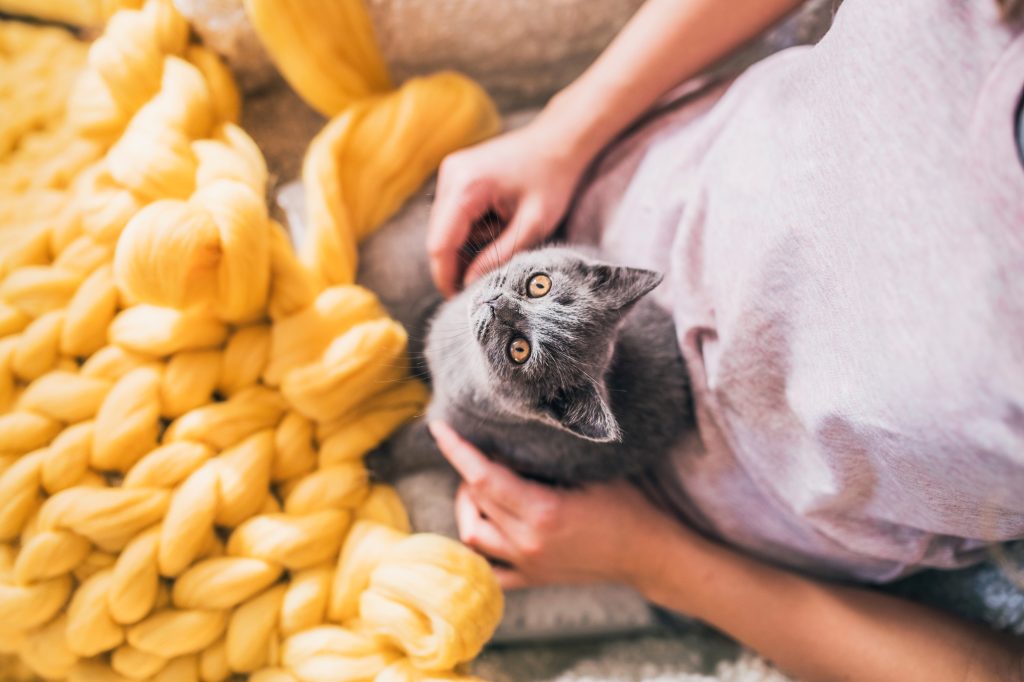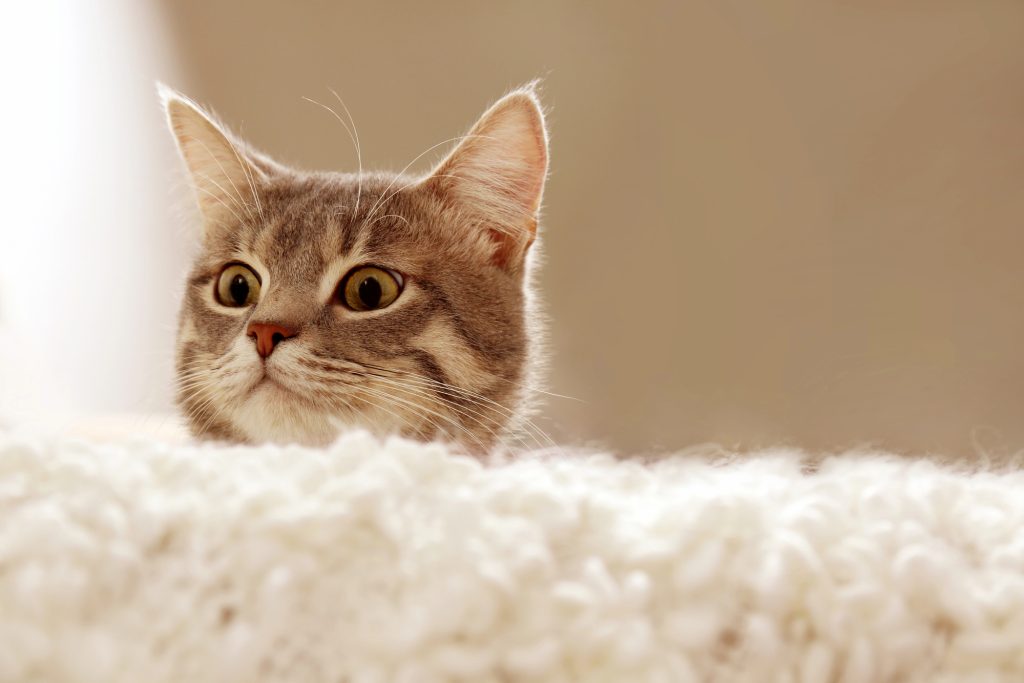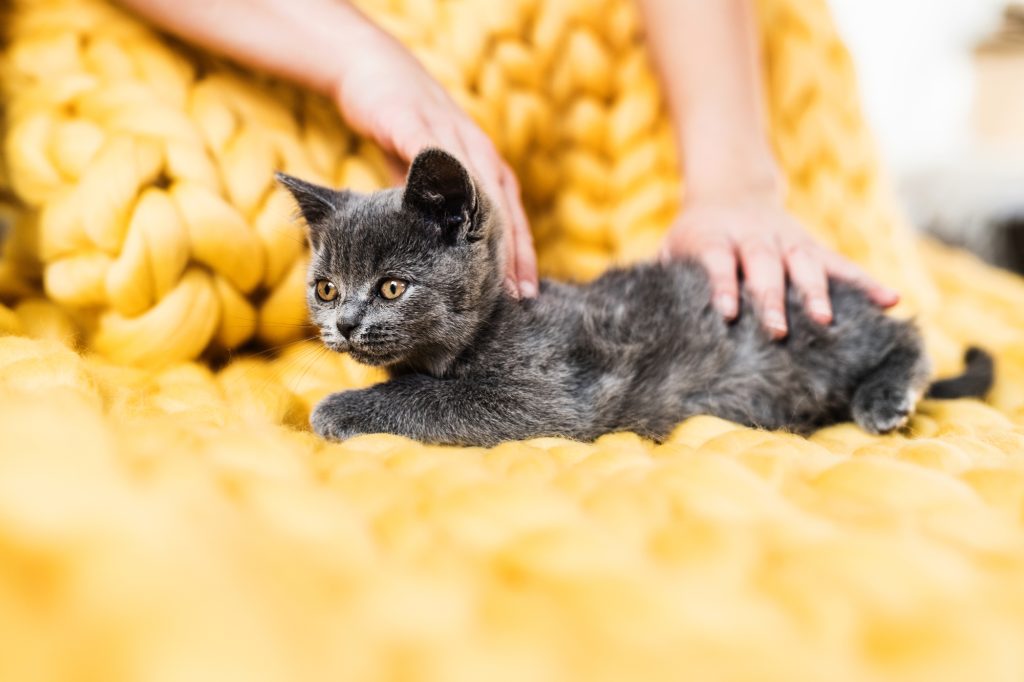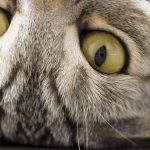Table of Contents
Owners often wonder about the size of their feline friends, especially when they appear to be smaller than average. A cat’s size can depend on a variety of factors, ranging from genetics to nutrition. While some cats are naturally petite, others might be small due to more concerning reasons.
It’s important to understand what’s normal for your cat and when size might indicate a health issue. Observing your cat’s overall well-being along with their size can help determine if there’s a cause for concern or if your kitty is just naturally tiny.
What Is Considered a Small Cat?
A small cat typically weighs less than 5 pounds as an adult, which is significantly below the average weight of 8 to 10 pounds for a domestic cat. However, it’s crucial to consider the breed and individual genetic background as these can influence what is ‘small’ for your feline.
While some breeds, like the Singapura, are known for their diminutive size, others may vary more in weight and stature. Recognizing the natural size range for your cat’s breed can help you determine if their small size is typical or if there might be underlying issues.

Potential Reasons Why Your Cat Is Small
Cats can be small for several reasons including genetic makeup, nutrition, health issues, or even early spaying and neutering.
• Genetic Factors
The genetic makeup of a cat is a primary determinant of its size. Just like in humans, certain genes dictate how large a cat can grow. These genes are inherited from both parents, so a cat with smaller ancestors is more likely to be small itself.
If your cat’s parents were small, or if it belongs to a breed that is characterized by smaller sizes, then its petite stature is likely just a normal expression of its genetics.
• Nutritional Deficiencies
Nutritional deficiencies can lead to health problems and stunted growth in cats. Young cats, in particular, require a balanced diet rich in animal protein for proper development. Cats are obligate carnivores, and their diet is essential to their growth and overall health.
Adult cats also need adequate nutrition to maintain their health. A cat that has not received the proper nutrients from kittenhood may remain permanently small, as critical growth phases have been impacted.
• Health Issues
Health issues can also play a role in a cat’s size. If a cat experiences sudden weight loss or a change in the cat’s eating habits, it could be a sign of an underlying health condition that affects growth and body condition.
Parasitic infections, chronic diseases, or hormonal imbalances are just a few health problems that can cause a cat to be underweight or smaller in size than expected.
• Early Spaying or Neutering
There is some debate among experts regarding the impact of early spaying or neutering on a cat’s growth. While some studies suggest it can result in larger size due to delayed closure of growth plates, others argue it has little effect on the overall size of the cat.
However, the benefits of spaying or neutering, such as reducing the risk of certain cancers and unwanted behaviors, often outweigh the potential for slight changes in size.
When to Worry About a Small Cat
If your cat is small but otherwise healthy, active, and energetic, there may be no cause for concern. However, if your cat’s small size is accompanied by symptoms like lethargy, poor appetite, or developmental delays, it might be time to worry.
Stunted growth could indicate a serious health issue, especially if your cat is not growing at the expected rate for its age. It’s crucial to monitor their development closely and take note of any other unusual symptoms that may arise.
Additionally, a small cat that is not gaining weight despite a good appetite, or one that has a poor coat condition, could have an underlying medical condition that requires attention. These signs should prompt you to seek veterinary advice.

When to Consult a Veterinarian
If you’re concerned about your cat’s small size, consulting a veterinarian can provide peace of mind. A vet can assess whether your cat’s size is normal for its breed or if there might be underlying health issues to address.
It’s particularly important to consult a vet if you notice any sudden changes in your cat’s size, behavior, or eating habits. Early detection and treatment of potential health problems can significantly improve your cat’s quality of life.
Supporting Your Cat’s Growth and Health
Ensuring your cat has a balanced diet and a safe, nurturing environment is key to supporting their growth and health.
Ensuring Adequate Nutrition for Optimal Development
Providing proper nutrition is crucial in preventing health problems and stunted growth in cats. Young cats should be fed a diet formulated for their life stage, which includes high levels of animal protein to grow properly.
Adult cats, while not growing, still require a balanced diet to prevent growth problems and maintain health. Feeding multiple meals a day and making sure that kittens younger than 8 weeks have access to the appropriate kitten formula can support their development.
The Role of Environment in Feline Growth
The environment plays a significant role in the growth of small cats. A nurturing and stimulating environment can contribute to the healthy development of a domestic cat, whereas stress and poor living conditions can hinder growth.
For certain feline breeds, like the American Curl, a conducive environment that allows for ample play and exploration is especially important. It’s vital for all small cats to have a habitat that supports their physical and emotional well-being.
Understanding Cat Size Variations
Cat size variations can be attributed to a mix of genetics, nutrition, and overall health.
Runt of the Litter: Will They Always Be Small?
The runt of the litter is often the smallest kitten born and may remain smaller than its siblings throughout its life. However, with proper care and nutrition, runt kittens can catch up in size and weight.
It’s important to monitor the runt’s development closely, as they can be more susceptible to health challenges. With the right support, many runts grow up to be healthy adult cats.
Small Cat Breeds vs Health-Related Smallness
Some breeds of cats, like the Cornish Rex and Japanese Bobtail, are among the smallest breeds and naturally petite. On the other hand, health-related smallness is not breed-specific and can affect any cat.
Siamese cats, including the chatty Siamese, are slender but should still fall within a healthy weight range. Distinguishing between a cat’s breed characteristics and potential health concerns is essential for proper care and treatment.

Frequently Asked Questions
1. Are there any special considerations for caring for a smaller-than-average cat?
Smaller-than-average cats, like the petite Devon Rex or other small cat breeds, may require special attention to ensure they thrive. Owners should monitor their petite cat’s food intake, as they might need more frequent meals in smaller portions to maintain their energy levels. It’s also essential to keep them warm, as smaller cats can lose body heat more quickly. Soft, cozy bedding and a warm environment can help.
Furthermore, for female cats, who are naturally smaller than males, it’s crucial to ensure they have a safe space away from larger pets to prevent intimidation or injury. Regular vet check-ups are also vital to monitor their health and development, as some conditions might not be as apparent in a smaller body.
2. How can I tell if my cat’s small size is a sign of a serious problem?
Gauging whether a cat’s small size indicates a health issue involves monitoring kittens’ growth and their growth rate. If your kitten is not following typical growth milestones, it could be a sign of a problem. Sudden weight loss or failure to gain weight in a growing cat warrants concern. Also, if your cat is small but exhibits signs of poor health, like lethargy or lack of appetite, it could indicate an underlying issue.
A healthy growth curve is a sign of good cat health. If your average cat is falling behind in size compared to its peers without any other symptoms, it might simply be on the smaller side of normal. However, persistent small size accompanied by other symptoms should prompt a visit to the veterinarian for further evaluation.
3. What health conditions can cause a cat to be abnormally small?
Several health conditions can affect a cat’s growth and cause a cat or kitten to be abnormally small. Hormonal disorders like diabetes and hyperthyroidism can lead to weight gain issues, while conditions affecting the digestive system may prevent proper nutrient absorption, causing a cat to be underweight. If an adult cat isn’t reaching the expected adult weight or a cat is losing weight, it’s critical to investigate further.
It’s also important to ensure that the cat isn’t eating compromised fresh food, which could lead to illness. In homes with multiple cats, it’s possible that a smaller cat may not be getting its fair share of food. Regularly cleaning the litter box and ensuring the outdoor cat is protected from parasites will also contribute to a healthy life and optimal growth.
4. Can neutering or spaying a cat stunt its growth?
Concerns about neutering or spaying affecting a cat’s growth are common, but these procedures do not typically stunt growth. In fact, they can contribute to a cat’s overall health and well-being. While some believe that early spaying or neutering can lead to a slightly taller stature due to delayed closure of growth plates, it generally does not prevent cats from reaching their genetic potential for size.
It’s important to consider that healthy growth is also influenced by factors such as genetics and nutrition. Neutering or spaying can even prevent certain health issues that could otherwise negatively impact a cat’s growth and development. Always discuss the best timing for these procedures with your veterinarian, who will consider your cat’s specific needs.
5. Is it normal for a cat to be much smaller than its littermates?
While it’s not uncommon for one kitten to be smaller than its littermates, a significant size difference might indicate health issues or underlying health conditions. Some cats, like the Scottish Fold or Munchkin breed, are known for their small stature, but if your petite cat is not one of these breeds, it could be cause for concern. Health concerns should be evaluated if the cat shows other signs of poor health or has not responded to anti-parasite treatment.
Monitoring a cat’s weight and scheduling a physical examination with a vet can help determine if the size difference is due to a benign cause or if it’s symptomatic of a condition like kidney disease or feline dwarfism. Offering nutrient-rich wet cat food can sometimes improve a cat’s food intake if they have lost weight. If your cat’s body remains smaller despite efforts, it could be normal for your cat or indicative of an underlying medical issue, which a vet can help diagnose.
Wrapping Up
Understanding the reasons why your cat may be smaller than expected can help you ensure they lead a healthy life. While Maine Coons are known for their large size, not all cats will reach such grandeur due to a variety of factors. Concerns about abnormal growth should prompt a consultation with a vet, especially if you’ve noticed your kitten isn’t growing as anticipated. Growth can be influenced by genetics, health issues, or nutritional deficiencies. For instance, delayed closure of growth plates can stunt growth, and internal parasites can impact a cat’s health significantly. It’s important to recognize these signs early to address them effectively.
If you’re worried about your cat’s size, keep in mind that cats grow mostly within their first 40 weeks, slowing down considerably after 30 weeks. To support your cat’s development, it’s beneficial for them to eat multiple small meals a day based on a regular feeding schedule. This is especially true for kittens, while middle-aged and older cats may show an increased appetite due to other health issues. Always be attentive to your cat’s dietary needs and consult your veterinarian if you suspect any issues with your cat’s health or growth pattern.

Hi, I’m Zoey, a devoted mom to two charming Siamese cats. My passion lies in assisting fellow pet owners in providing optimal care for their cats. On CatsEuphoria, I share practical tips and relatable stories, inviting you to join me in appreciating the authentic bond between humans and our beloved feline companions.




